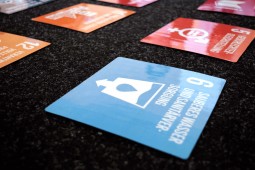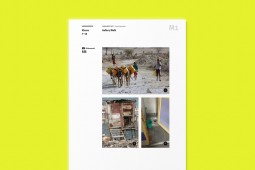Toiletised World – Trainings

Why
The experiences of German Toilet Organization e. V. (GTO) have shown that a firm anchoring of the topic of toilets and hygiene in the classroom significantly supports the structured improvement of the school toilet situation. In particular, the change in perspective that frequently occurs among pupils helps them reflect on their sanitary facilities and appreciate them more.
Agenda 2030 calls on governments to expand global learning. The federal states are responding to this with new framework curricula that consider this. To ensure that global learning in schools does not become an additional school task, GTO offers training courses to sensitize teachers and educators to global learning issues. By taking part in one of these training courses, they will be enabled to react adequately to the political guidelines and to implement the topics independently in their lessons.
In addition, GTO offers two to four-hour workshops on development education work for employees of topic-related companies who wish to become involved in schools in their area. During a workshop, employees learn pedagogical methods and gain exciting knowledge about sanitation and hygiene in a global context. As multipliers, they can actively apply what they have learned in dealing with schoolchildren of different ages.
The core of the training courses is the transfer of application-oriented knowledge. The focus is on the learning area of global development using the example of water, sanitation and hygiene (WASH). The effects of lacking or inadequate WASH supply in different countries in the context of the respective financial, cultural and social living conditions are examined. The multipliers receive methodological approaches and selected materials for direct application. The aim is to dock the topics of toilet and hygiene, sustainable development and human rights clearly and variably to different subjects and to anchor them in the school curriculum on a long-term basis.
How did you like it? Follow the link and give us feedback.
The training has motivated me to incorporate sustainable development more consistently into the classroom." (Participant, 2019)
News
No Toilets – No Future!? New teaching materials published
New teaching materials expand the spectrum of the education project "Toiletized World" and offer a variety of ideas for global education in the classroom.
Leave No One Behind!
According to the World Health Organization (WHO) 4.2 billion people worldwide have no access to safe sanitation. Berlin school students publicly demonstrated on the occasion of World Toilet Day 2019.
Hints
What are the objectives of the training courses?
Multipliers* should be provided with knowledge (methods and materials) and work out how the topics of water, sanitation and hygiene can be clearly integrated into lessons or projects in an interdisciplinary way.
Which competences are strengthened?
Are the training courses free of charge?
Does the project contain action components?
Is the Southern perspective included in the training courses?
Are the courses officially approved?

